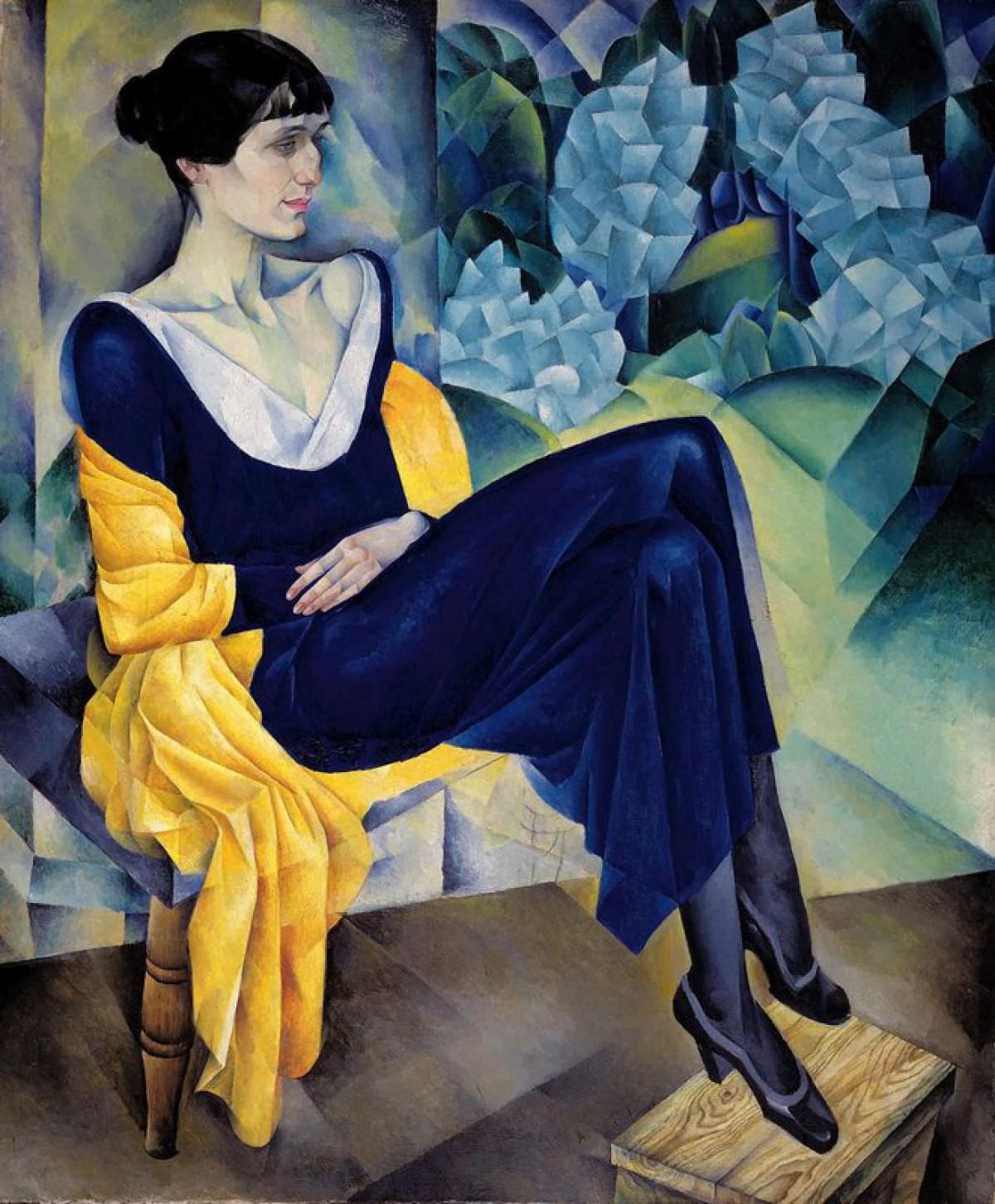Considered to be one the greatest of Russia’s poets, Anna Akhmatova, is a symbol of Russia and guardian of its culture and language. Born in 1889 in Odessa, her family quickly took up residence in Tsarskoye Selo outside Saint Petersburg, the city in which she would later reside for the greater part of her life. As a daughter of Russia, impacted by the time period in which she lived, her works reflected the changing tides of Russia by critically and poignantly confronting Stalinist Terror, World War II, and the subsequent Russian Thaw.
Considered to be one the greatest of Russia’s poets, Anna Akhmatova, is a symbol of Russia and guardian of its culture and language. Born in 1889 in Odessa, her family quickly took up residence in Tsarskoye Selo outside Saint Petersburg, the city in which she would later reside for the greater part of her life. As a daughter of Russia, impacted by the time period in which she lived, her works reflected the changing tides of Russia by critically and poignantly confronting Stalinist Terror, World War II, and the subsequent Russian Thaw.

The life of the poetess was marked by trials and tragedies which give spark to her writing. The pain evoked in her writing was both personal and that which she witnessed around her. Throughout her life, Akhmatova watched as loved ones and family were killed, exiled or imprisoned. Her suffering was deep as Nikolay Gumilyov, first husband of the poetess, was executed during the Stalinist Terror and their son, Lev, imprisoned during the 1930 Purges marked as the son of a counterrevolutionary. Despite her suffering, Akhmatova remained in Russia, choosing not to flee her homeland, with a conviction to use her poetry to bear witness to the suffering and injustice of her time and give a voice to the vulnerable.
_d_850.jpg)
Continuing to produce poetry under Stalinist Terror, she was in official disfavor and many of her works prohibited due to their critical and piercing themes. One of her greatest works “Requiem,” initially memorialized only in trusted friends, is a lament of suffering and anthem of resistance born from the general and personal tragedies of the Stalinist Terror and dedicated to victims of the Purges.
“…I’ve cried for seventeen long months, / I’ve called you for your home, / I’ve fell at hangman’s feet—not once, / My womb and hell you’re from. / All has been mixed up for all times, / and now I can’t define / Who is beast and who is man, at last, / and when they’ll kill my son…” (Excerpt from Requiem)
Residing in Leningrad at the time of the blockade, Akhmatova once again was a symbol and voice to the sufferings of the people. Partaking in special radio broadcasts, the poetess inspired citizens to preserve her beloved language and culture as it was under siege, famously writing:
“And we will preserve you, Russian speech, / Mighty Russian word! / We will transmit you to our grandchildren / Free and pure and rescued from captivity.”
Although the blockade and war had ended, in 1946 Akhmatova was dismissed from the Union of Soviet writers, her works destroyed, publications banned, and Lev once again imprisoned. Seeking her son’s freedom, the poetess for a time set aside her political potency and sought favor with Stalinist Russia. However, it wouldn’t be until the Thaw after Stalin’s death that her works and son would be released.
After a life of suffering and steadfastness, Anna Akhmatova died on 5 March 1966 outside of Moscow. Her recognition as a literary symbol would not be recognized within Russia until the 1980s when her works would be officially released.

Today, Russians and foreigners alike visit the Anna Akhmatova Museum at the Fountain House in Saint Petersburg where the poetess resided on the Fontanka Embankment. The apartment museum features photographs, original manuscripts, and artwork in honor of the poetess who lived through and boldly chronicled the sufferings and hardships endured under Stalinist Terror and the years after.

